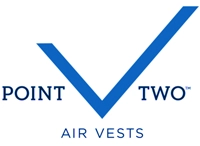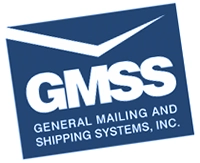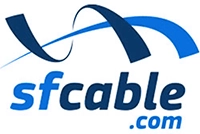Blanket Purchase Agreement (BPA) is a supplemental contract to an existing GSA contract, designed to simplify the method of filling anticipated repetitive government procurement of supplies or services. Getting a BPA contract helps contractors increase their revenue stream and become preferred vendors, with one or more government agencies.


- BPA contracts produce over $400 million in sales
- Promises volume sales at locked prices, for a number of years
- Requires less administrative work
with GSA
Awarded
Served
under
Management
Modifications
Completed
Processed
Rating
Contact us at 201.567.6646 or provide your details below for one hour free consultation
What is a GSA BPA?
A blanket purchase agreement (BPA) is a simplified acquisition method that government agencies use to fill anticipated repetitive needs for supplies or services. Essentially, BPAs are like “charge accounts” set up with trusted suppliers.
While almost everyone knows that BPA stands for Blanket Purchase Agreement, much fewer people really understand what it is. Put this simply: a blanket purchase agreement allows the government to automatically place an order under the established BPA, to quickly refill an ongoing need for recurrent supplies, or receive products and services within multiple delivery dates. Examples of such are office, sanitation, and janitorial supplies, software, and so on.
What does BPA mean in government contracting?
A BPA is a more advanced way to do business with government where the quantity and the delivery is more certain than with a standard GSA or DLA contract where the quantity and the delivery is indefinite (IDIQ). The BPA is just a way to simplify common purchasing thru a more organized channel, where both government and contractor know what to expect from one another.
The main elements of a BPA are:
Administrative part – explaining about contractor and their past performance supporting the requirements set by the government language.
Technical proposal – providing clear evidence of contractors’ capability to follow all the posted rules;
Price Proposal – offer of product or service for a set price with specified discounts in return for promise of volume and other guaranties made by the government to those who win the bid – “BPA Contract Award”.
There are two types of BPAs, traditional and GSA Schedule BPAs. In this article we’ll be focusing on traditional BPAs — i.e., those that exist outside of GSA Schedule contracting.
The Blanket Purchase Agreement mechanism allows federal buyers to minimize administrative workload required to purchase recurrent supplies . The ordering process within BPAs is greatly simplified and streamlined, allowing the federal agencies to just do their work without the need to waste time on unnecessary bureaucracy and contract documents review, while saving time and taxpayers’ money.
What is the difference between a BPA and a contract?
A BPA is an agreement, not a contract; each Call must be funded. … On the other hand, an IDIQ is a type of contract in which the exact date of delivery or the exact quantity or a combination of both, is not specified at the time the contract is executed.
The main difference is that Blanket Purchase Agreement is an agreement, not exactly a contract. You see, a contract implies certain obligations of both sides. While the BPA does not require a buyer to place an order under BPA or to fund it. In fact, the blanket purchase agreement merely states that one party of the agreement can arbitrarily place orders and the other party should do its best to deliver what’s ordered under the terms and conditions, for the price both parties have agreed beforehand.
How does a BPA work?
Whenever a need arises during procurement for some supplies or services, on a recurrent basis, a BPA may be established under any existing Schedule contract. The type and category of the Schedule do not matter. All requirements to the contract and to the contractor remain the same. This includes warranty, past performance and past experience evaluation, delivery terms, prices etc.
The buyer establishes a BPA in accordance with FAR 8.405-3. At least three contractors must be selected to receive quotes from. The BPA clauses cannot alter, modify or contradict to terms and conditions of the source GSA Schedule contract. However, the federal buyer can add new conditions to the BPA. The common additions in the BPA include the frequency of ordering, discounts, additional requirements not specified in the main contract, delivery locations, and lead time.
After the BPA is established, further purchases made under this BPA become much simpler and faster for both the contractor and the federal agency. The “minimum documentation” principle greatly reduces the administrative burden for both sides. Specifically, a contracting officer should provide the following bare minimum of information:
- Schedule contract to which the BPA is awarded
- Description of products or services ordered
- Prices
- Justification for a limited-source BPA if applicable. Normally, the buyer must give preference to Multiple-Award BPAs whenever possible. However, sometimes fewer contractors are able to perform the work or are qualified for it. In such cases, a single-award BPA greater than $100 million must be justified as stated in FAR 8.405-6.
- Documentation for the product
- Basis for the award decision
Importantly, the duration of blanket purchase agreements cannot exceed 5 years, but it may exceed the duration of the contract as long as there are available prolongation options for the contract. Another thing worth mentioning and remembering is that a contracting officer may (and generally should) periodically review the BPA for compliance and determine whether it continuously offers the best value.
What is a contract vehicle definition?
A contract vehicle is a method, by which the government can purchase goods and products, and a way for companies to sell products and services to the government. Examples of contract vehicles are:
- GSA Schedule contract
- MAS Schedule contract, where the company is a subcontractor of some other GSA contract holder
- Blanket Purchase Agreement
- Set-aside contract
- etc.
Price Reporter team has been efficient at managing our GSA contract catalogs for the past 5 years. They keep our catalogs well maintained and compliant, saving our resources and letting us focusing on making sales.
The B. David Company enlisted the services of Price Reporter, Inc. to setup our DOD EMALL account. We are a second generation family owned company and were uncertain what would be required to complete this task. I fully recommend Price Reporter, Inc. to any company that is looking for assistance with their Government business endeavors. They were and have continued to be extremely helpful. We will continue to rely on Price Reporter, Inc. for future projects.

Price Reporter recently helped us with our 3rd GSA contract, the 2nd they did with us. It was the fastest we’ve ever been through the process with GSA. Each step was easy because the ground work was done before we were asked to do anything. Our pricing verification phase went smooth and quickly and both our contracts were accepted without rejection, with minimal negotiations with contracting.

We first learned about the DOD EMALL a couple years ago from Price Reporter. We decided to move forward on it in 2016. I would recommend them based on the following items:
- They split the payment. Half upfront and the other half is only charged should DOD EMALL contract be awarded to you.
- Adding Price Reporter, specifically Andrey Karpov and Igor London, as agents on our GSA schedule streamlined the process. They were able to communicate with our GSA Contracting Officer to ensure that we received what we needed for DOD EMALL from GSA. This saved time on my end and sped up the process.
- They provide a list of everything you need. Andrey and the rest of his team are meticulous and understand the process on how to get a DOD EMALL contract and thus we benefited from their expertise.
These are a few of the reasons why I would recommend Price Reporter, Inc. Thank you!
Since 2009, Price Reporter has provided Fisher Scientific timely competitive item level GSA pricing data allowing us to identify opportunities and threats. Their customer service focus is solid.

Price Reporter are helping make my life much easier and helping me feel so much better about our GSA contract. Thanks!!!

For the past 10 years, Price Reporter has been providing us with exceptional service for the maintaining of our GSA office supplies contract. They have updated our files on a very timely basis. They have provided modifications when required. For a number of years, they had been giving us a price algorithm where each of our items were priced more than our cost and a penny below the next competitor. A very unique position that gave us thousands of government orders – that was prior to the GSA FSSI BPA.
And for all the service given, their cost was far less than any other consulting firm that we had contacted or worked with over the years.
I would highly recommend their service to any small business that is either interested in getting into the federal government arena or who wants to have their contract maintained at a most highly professional level.
Thank you for supporting a VETERAN OWNED SMALL BUSINESS.
We looked around for a reputable company to help us acquire a GSA contract for Muzeek World Intl., Inc. After looking around we were unsuccessful in finding a good company. By chance, one of our colleagues recommended Price Reporter, Inc., so we called them up. I highly recommend Price Reporter to anyone looking for help in acquiring a GSA contract or any Government business dealings. They have the expertise and the know-how to get the work completed.
We have used Price Reporter for various services over the past 5 years and have been very happy with the services they have provided and continue to provide for us. They work hard to help you get the most from your GSA Schedule and are able to adapt and customize to what your particular needs are. I highly recommend their services to others with GSA Schedules as they help you maximize your sales

We are extremely grateful for all your help in guiding us through the whole process, as this was all new to us. Without the help of you and the rest of the team at Price Reporter, it would have been impossible to achieve our approval – or at the very least – it would have taken a very long time. I would not hesitate to highly recommend Price Reporter, Inc. to anyone needing assistance in government contracts. Your knowledge and assistance was invaluable and very much appreciated, and we look forward to a continued excellent relationship.
Without Price Reporter contacting me at the right time, GSA would probably cancel my contract already. The CO said that she contacted us back in November of 2016, but got no response. Then Price Reporter called me and helped me with all the things needed and I followed his advise. That’s how we found out that our contract will be terminated soon, but had enough time to take the corrective action. The CO called us recently and it looks like they will extend our contract life. Thanks so much for your timely follow up – Price Reporter gave our Government sales a new hope!

My company STEC-STEADFAST TECHNICS have worked with 2 IT companies before we linked up with PRICE REPORTER ,INC over 5 years ago. Ever since our relationship with the company, there is no reason to stop working with them.
The company is staffed with experienced and high Tech professionals who meet our needs adequately.

























BPA Contractors
What is a BPA FSSI Contract?
A BPA FSSI Contract is a procurement mechanism established by the U.S.
General Services Administration (GSA) as part of the Federal Strategic Sourcing Initiative (FSSI). It provides federal agencies with a streamlined and cost-effective method to acquire commonly used goods and services. These agreements leverage the collective buying power of the federal government to negotiate favorable terms with suppliers, driving cost savings and operational efficiency.
The FSSI Advantage
The FSSI Contract is designed to address various procurement challenges faced by federal agencies. By consolidating purchasing power, it promotes competition among suppliers, reduces duplication of effort, and ensures compliance with procurement regulations. Additionally, FSSI contracts often prioritize sustainable and environmentally friendly products and services, aligning with the federal government’s commitment to sustainability.
Sustainability and BPA FSSI Contracts
Green Procurement
Sustainability has become a core focus of federal procurement, driven by the government’s commitment to reducing its environmental footprint. BPA FSSI contracts play a crucial role in advancing this agenda by promoting the acquisition of environmentally friendly products and services. From energy-efficient office supplies to green building materials, these contracts enable federal agencies to make sustainable choices, while fulfilling their procurement needs.
Cost Savings and Sustainability
One of the significant benefits of BPA FSSI contracts is cost savings. By aggregating demand and negotiating favorable terms, federal agencies can achieve substantial cost reductions. This cost-efficiency extends to sustainable products and services, deeming it financially viable for agencies to prioritize environmentally responsible options. This way, BPA FSSI contracts facilitate the dual objectives of sustainability and fiscal responsibility.
Key Benefits of BPA FSSI Contracts
Streamlined Procurement
BPA FSSI contracts simplify the procurement process. They reduce administrative burdens by providing pre-negotiated terms and conditions, allowing agencies to place orders quickly and efficiently This streamlining of procedures translates to time and cost savings.
Increased Competition
By consolidating demand, BPA FSSI contracts encourage competition among suppliers. This competition leads to better pricing and more innovative solutions, ultimately benefiting federal agencies and taxpayers.
Flexibility and Customization
Despite their standardized framework, BPA FSSI contracts offer flexibility. Agencies can tailor agreements to meet their specific needs, ensuring that procurement remains aligned with their mission and goals.
Compliance and Accountability
BPA FSSI contracts promote compliance with federal procurement regulations and policies. They also enhance accountability by providing transparency into procurement processes and expenditures.
Challenges and Considerations
While BPA FSSI contracts offer numerous benefits, they are not without challenges. Agencies must carefully assess their procurement needs to determine if such contracts are suitable. Additionally, ensuring the continuous monitoring and evaluation of suppliers’ performance is crucial to maintaining contract effectiveness.
Conclusion
The BPA FSSI contract is a powerful tool in the arsenal of federal procurement, driving efficiency, sustainability, and cost savings. By streamlining the acquisition process and promoting competition, these contracts empower federal agencies to make environmentally responsible choices while fulfilling their mission. As sustainability continues to gain prominence in government initiatives, BPA FSSI contracts will play an increasingly vital role in shaping the future of federal procurement.
WHAT IS A BPA CONTRACT?
A BPA contract is a GSA Schedule contract that implies simplified BPA procurement.
- Faster procurement with quicker turnaround thanks to streamlined purchase mechanisms
- Low or no minimum orders with the minimum threshold of $25 and no processing fee
- Federal buyers can use the GSA SmartPay card to purchase items quickly
- Last year, BPA contracts produced a total of $400 million ~ in sales
- BPA contract can either be for one or for many products, that are usually discounted from the regular contract price
- The product proposed for BPA must be on the bidding vendor’s GSA contract
- Government promises to buy large quantities, at locked prices, for a number of years (1, 4 or 5), with options to renew
BPA PRICE
BPA contracts are hard to find and even harder to win for many reasons.
For example, an item may not be on contract, no one is watching eBuy or FBO, the price is not competitive, etc. That is why being a BPA contractor can be extremely profitable for business; of course, as long as you can secure a BPA Contract.
Knowing about the BPA opportunity is only the beginning, and once you decide to bid, you will need to prepare a complete offer proposal. The ability to prepare a complete, clean and competitive offer will put you at an advantage of getting an award. Price Reporter’s expertise and knowledge will help you increase your chances of getting BPA contracts and end up with your brand new GSA Blanket Purchase Agreement established.
WHAT IS FSSI BY GSA
Federal Strategic Sourcing Initiative (FSSI) is a special type of BPA contract which offers an extraordinary opportunity for GSA Contract suppliers.
- Office supplies (OS4)
- Janitorial and Sanitation supplies (JanSan)
- Building Maintenance and Operations (BMO)
- Wireless
- Domestic Delivery Service
- Maintenance, Repair, and Operations (MRO)
FSSI GSA
For example, in 2018, 15 FSSI OS3 contractors sold over $70 million combined. Imagine how being a preferred FSSI BPA vendor would change your business?
As rewarding as the FSSI can be, navigating the process that is necessary to become an FSSI Contract holder is daunting. First there is the pre-qualification, then offer preparation, submission negotiation and award. Vendors must also make sure that the offer is complete, and compliant. Price Reporter has been successful with FSSI awards and management over the years, and we can help your company as well.
SCHEDULE BPAS – WHAT ARE THEY?
Blanket Purchase Agreement (BPA) is an “add-on” to the already awarded GSA Schedule contract.
The purpose of the BPA is to simplify procurement of repetitive needs: various office supplies, software licenses, maintenance and repair services, and so on. This way, the government agency gets what it needs faster and more streamlined, without the need to preliminary coordinate such procurements with the vendor. On the other hand, a BPA contract is also beneficial for vendors, as it guarantees the constant flow of sales from the federal sources.
Governmentwide Schedule BPAs
Governmentwide BPAs are available to all federal agencies alike. The purpose of this type of BPA is to consolidate the same recurring needs in several categories available to all government agencies.
- Federal Strategic Sourcing Initiative BPAs
- Wireless FSSI
- Janitorial and Sanitation Supplies
- Maintenance, Repair, and Operations
- IT and Services
- Identity Protection Services
- Salesforce
- Software Purchase Agreements (formerly SmartBUY)
- Software agreements
- Database management software agreements
- Enterprise Management Software (EMS) Agreements
- Information Assurance software agreements
- Travel, Transportation, and Logistics
- Emergency Lodging
- Long Term Lodging
How are Schedule BPAs Different?
How are Schedule BPAs different from the traditional ones? The “normal” Blanket Purchase Agreements are regulated by the Federal Acquisition Regulations Part 13, whereas the same FAR Part 13 does not apply for GSA BPAs, which means that Schedule BPAs are not the subject to Simplified Acquisition Procedures. Instead, Schedule BPAs are regulated by FAR 8.405-3.
So, what does it mean in layman’s terms? This means that government agencies are ordered to give preference to multiple-award Schedule BPAs over single-award BPAs. And that’s the main difference. Both vendors and federal agencies win from using Schedule BPAs first.
The main advantages of GSA Schedule BPAs over traditional Blanket Purchase Agreements are lower costs, faster order completion, lower administrative costs, and better control over the process.
Establishing Schedule BPAs
Here is what you need to know about the process of establishing Blanket Purchase Agreements.
When a federal buyer establishes a Schedule BPA, it follows FAR 8.405-3 as we said above. The procedure requires the buyer to solicit at and receive quotes from at least three vendors. With that minimum required choice, the buyer can seek further price reductions or make the final selection before establishing a Schedule BPA based on quality or performance terms.
Generally, federal buyers are not allowed to purchase from just one source. But if this happens – this situation is specifically called “sole source solicitation” – the FAR 8.405-6 clause comes into force. The buyer then needs to justify the limited choice. For instance, a specific brand can be chosen only if the government explicitly needs this particular brand only. And the buyer must explain why.
Terms and Conditions
Established GSA Schedule Blanket Purchase Agreements inherit all terms and conditions of the parent GSA Schedule contract. There cannot be any changes in the terms and conditions within the BPA that contradict the main contract. And conflicting clauses are resolved in favor of the main Schedule contract. However, if the BPA contains clauses or provisions that actually improve terms and conditions of the contract (i.e. provide faster delivery or lower rates), such clauses can be accepted. In case of any doubts or conflicts, please contact the GSA contracting officer.
Single-Award BPA Approval
Single-Award BPA is a Blanket Purchase Agreement awarded to only one contractor. A viable procurement option in the past, now single-award BPAs are only of limited use. The GSA specifically recommends federal buyers to give preference to multi-award BPAs when it comes to orders above a certain threshold. Single-award BPAs are only awarded for one year, with four consequent one-year options.
Additionally, if the estimated value of the order exceeds $112 Million including options, such a single-award BPA may not be awarded without the direct approval by the head of the agency. Specifically, a single-award BPA can only be approved if the products and services under the BPA are so integrally related to each other, that sharing the entire BPA between multiple contractors is either impossible or unreasonable.
While single-award BPAs are still cost-effective in some cases, multi-award BPAs get approved more often today.
Time Limitations
For multiple-award BPAs the time limitation is 5 years. However, according to FAR 8.405-3(d)(1) in some cases this limitation may be exceeded to “meet program requirements”.
The time limitation for a single-award BPA is one year, with four optional prolongations up to 5 years in total.
A curious question arises when a BPA is to be awarded to a Schedule contractor, but its current GSA Schedule contract is about to end before the end of the BPA. What is the course of actions in this case?
The Schedule Contract FAR clause 52.216-22(d) states that “Any order issued during the effective period of this contract and not completed within that period shall be completed by the contractor within the time specified in the order. The contract shall govern the contractor’s and government’s rights and obligations with respect to that order to the same extent as if the order were completed during the contract’s effective period, provided that the contractor shall not be required to make any deliveries under this contract after the completion of customer order, including options, 60 months following the expiration of the basic contract ordering period.”
Put this simply, if your main Schedule contract expires, you still can (and must) finish orders placed within the BPA.
Importantly, aside from time limitations, vendors have to take care of compliance of the GSA Schedule BPA with the GSA’s requirements. Specifically, every year a federal buyer should review the Schedule BPA and make sure the underlying GSA contract is still in effect, and the contractor’s services and products still represent the best value. Also, federal buyers will annually check if there are some price reductions that can be applied to the BPA.
BPA Set Asides
- Small businesses
- 8(a) firms (agencies must work with SBA to complete the offer and acceptance process)
- HUBZone small businesses
- Service-disabled veteran-owned small businesses
- Economically disadvantaged women-owned small businesses
- Women-owned small businesses eligible under the Women-Owned Small Business Program
The BPA set asides are still the subject to the terms of FAR 8.405-3. Note that setting aside a BPA for the above categories does not necessarily mean that such small business will be awarded. The socioeconomic status of small businesses is taken into consideration when identifying potential competition for a BPA award. And the buying agency should set aside at least one small business in each socioeconomic category, if available. Other small businesses are subjects to review and market research, as always.
Open Market Items
Can you sell to federal agencies open market items that are not within the scope of your existing Schedule BPA?
- All applicable acquisition regulations pertaining to the purchase of the items not on the GSA Schedule contract have been followed (e.g., publicizing (FAR Part 5), competition requirements (FAR Part 6), acquisition of commercial items (FAR Part 12), contracting methods (FAR Parts 13, 14, and 15), and small business programs (FAR Part 19));
- The buying contracting officer has determined the prices for the items not on the GSA Schedule contract are fair and reasonable;
- The items are clearly labeled on the order as items not on the GSA Schedule contract; and
- All clauses applicable to items not on the GSA Schedule contract are included in the order.


